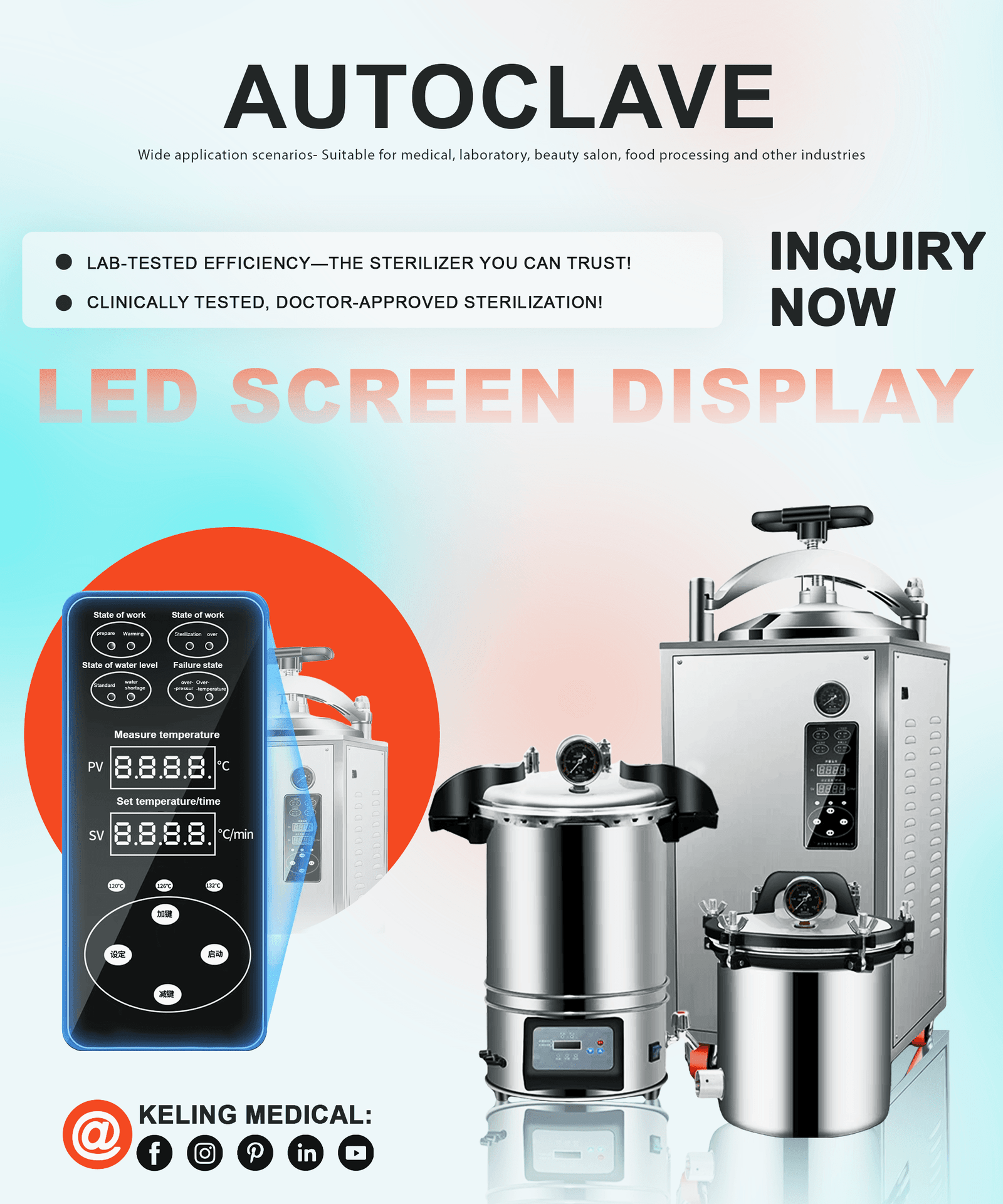
A reliable way to clean contaminated soil involves sterilizing it through the application of autoclave technology. Autoclaves maintain soil health through high-pressure steam sterilization which eradicates harmful microorganisms and pests in an eco-friendly manner.
This article examines soil contamination issues while detailing sterilization techniques and explaining the vital role autoclaves serve in sustainable farming.
The article examines both what soil sterilization entails and its significance in agriculture.
Soil sterilization involves removing harmful organisms, pests, and weed seeds from soil to produce a clean medium free of pathogens. Maintaining soil health through proper management techniques is essential in environments like greenhouses and organic farms because it directly affects crop quality.
Soil-borne pathogens like fungi, bacteria and nematodes produce devastating plant diseases. Sterilization removes these threats.
Healthy soil leads to enhanced root development and nutrient absorption which boosts crop yields.
Through soil sterilization farmers can minimize their dependence on chemical pesticides and herbicides which enhances the sustainability of farming methods.
High-pressure steam sterilization inside autoclaves produces effective soil sterilization. The process involves:
Loading the Soil: The autoclave contains trays or containers filled with soil during the sterilization process.
Heating: The autoclave sterilizes the soil by heating it to temperatures between 121°C and 134°C based on the level of sterilization needed.
Pressurizing: The soil undergoes sterilization because high-pressure steam eliminates pathogens, pests and weed seeds.
Cooling: After sterilization the soil undergoes cooling before it becomes usable.
This procedure achieves complete sterilization by eliminating contaminants that threaten crop well-being.
Autoclaves are particularly effective at eliminating:
During sterilization soil-borne fungi Fusarium and Rhizoctonia become eradicated.
The sterilization process effectively eliminates dangerous bacteria types including Pseudomonas and Erwinia.
High-pressure steam kills microscopic nematodes that attack plant roots.
Autoclaves destroy weed seeds which stops unwanted plants from growing.
Autoclaves establish a secure and uncontaminated environment for crops by eliminating specific threats.
Autoclave soil sterilization presents multiple benefits when compared to traditional soil sterilization techniques.
The autoclave sterilization process preserves the natural state of soil by avoiding the introduction of toxic substances which chemical treatments use. This method serves as the perfect choice for organic farming and sustainable agriculture.
Results from traditional soil sterilization methods like solarization or chemical fumigation vary because environmental conditions influence their effectiveness. Autoclaves demonstrate dependable sterilization capabilities which maintain uniform soil quality standards.
Soil sterilization through solarization demands several weeks but using autoclaves achieves the same result in only hours. Farmers gain the ability to prepare their soil rapidly and effectively through this method.
The upfront cost of autoclaves pays off over time because they reduce chemical dependency and boost crop productivity while providing efficient soil sterilization.
Soil health remains a fundamental component within the highly controlled settings of greenhouses. Autoclaves serve as a common tool in greenhouse farming where they sterilize soil to create perfect growing environments for delicate plants like vegetables, fruits, and flowers.
Sustainable practices underpin organic farming which leads to the production of high-quality crops. Autoclave sterilization meets organic farming standards by using heat instead of chemicals to destroy pathogens and pests.
Autoclave technology has transformed soil sterilization into an efficient and dependable method that protects the environment from contamination. Autoclaves help enhance sustainable farming by eliminating harmful microorganisms along with pests and weed seeds which results in better crop yields.
Investments in autoclaves by agricultural equipment distributors and suppliers help buyers advance towards sustainable farming methods and ensure future financial success.
Contact us today if you want to learn more about the advantages autoclaves provide for soil sterilization processes.
Soil sterilization prevents the spread of plant diseases, improves crop yields, and reduces reliance on chemical treatments, ensuring healthy and sustainable farming practices.
Autoclaves use high-pressure steam to heat soil to temperatures that eliminate pathogens, pests, and weed seeds, creating a clean growing medium.
Yes, autoclaves come in various sizes and capacities, making them suitable for both small-scale and large-scale agricultural operations.
Yes, autoclaves provide an eco-friendly alternative to chemical treatments, reducing environmental impact and supporting sustainable farming practices.
You can purchase high-quality autoclaves from Keling Medical. Contact us via email at inquiry@shkeling.com, WhatsApp at +8618221822482, or visit our website at https://autoclaveequipment.com/.
For more information about autoclaves and their applications, contact us today:
Email: inquiry@shkeling.com
WhatsApp: +8618221822482
Website: https://autoclaveequipment.com/
Let us help you find the perfect autoclave solution for your agricultural needs!

The autoclaving process serves as an essential sterilization practice utilized across medical, laboratory, and research facilities to protect glassware and instruments through effective sterilization. High-pressure steam eliminates pathogens during this

The autoclaving process serves as an essential sterilization practice utilized across medical, laboratory, and research facilities to protect glassware and instruments through effective sterilization. High-pressure steam eliminates pathogens during this
The autoclaving process serves as an essential sterilization practice utilized across medical, laboratory, and research facilities to protect glassware and instruments through effective sterilization. High-pressure steam eliminates pathogens during this
The autoclaving process serves as an essential sterilization practice utilized across medical, laboratory, and research facilities to protect glassware and instruments through effective sterilization. High-pressure steam eliminates pathogens during this
The autoclaving process serves as an essential sterilization practice utilized across medical, laboratory, and research facilities to protect glassware and instruments through effective sterilization. High-pressure steam eliminates pathogens during this
The autoclaving process serves as an essential sterilization practice utilized across medical, laboratory, and research facilities to protect glassware and instruments through effective sterilization. High-pressure steam eliminates pathogens during this